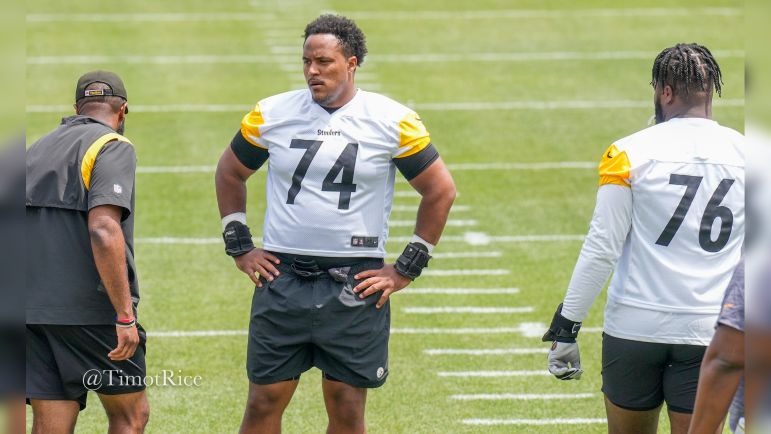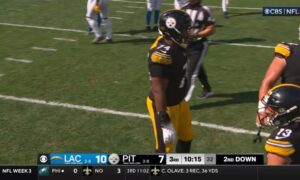Player: G Spencer Anderson
Stock Value: Up
Reasoning: The Steelers reportedly moved second-year offensive lineman Spencer Anderson to guard. After making the team as an all-positions utility player, the shift to a specialist position is a positive sign. It indicates that he has shown the coaches how much he can do, and now they want to see how far he can take it.
The Steelers would like Spencer Anderson to be their next Chris Hubbard or Matt Feiler. That might not sound like high praise, but it is a compliment. Perhaps it will go down easier if you throw Kelvin Beachum into that lot as well.
One thing all those players had in common: they showed they can play anywhere before specializing. All of them ended up becoming a tackle, though Feiler ultimately kicked inside to guard. Anderson has experience playing tackle, guard, and center, but the Steelers just moved him to guard.
And they also reportedly told starting RG James Daniels that they are not signing him an extension, so that’s a future job opening. While the Steelers drafted Mason McCormick in the fourth round for that reason, Spencer Anderson is another option.
I imagine the Steelers want to get an extended look at Anderson specializing at guard in Latrobe. If they like what they see, they may have to think about Nate Herbig, for example, currently competing at center. But this is probably more about next year than anything.
Then again, for all we know, the Steelers could throw Anderson back out to tackle during training camp. Before the draft, we were talking about him potentially playing center. Some beat writers suggested the Steelers believe his best position was tackle.
But that’s the nature of generalist offensive linemen, isn’t it? And once they have an opportunity to settle into one position, they begin to grow there. Guys like Beachum and Feiler did. Perhaps Spencer Anderson will be able to show that same growth capacity. Assuming, of course, that the Steelers leave him at guard and don’t start moving him around again.
As the season progresses, Steelers players’ stocks rise and fall. The nature of the evaluation differs with the time of year, with in-season considerations being more often short-term. Considerations in the offseason often have broader implications, particularly when players lose their jobs, or the team signs someone. This time of year is full of transactions, whether minor or major.
A bad game, a new contract, an injury, a promotion—any number of things affect a player’s value. Think of it as a stock on the market, based on speculation. You’ll feel better about a player after a good game, or worse after a bad one. Some stock updates are minor, while others are likely to be quite drastic, so bear in mind the degree. I’ll do my best to explain the nature of that in the reasoning section of each column.






